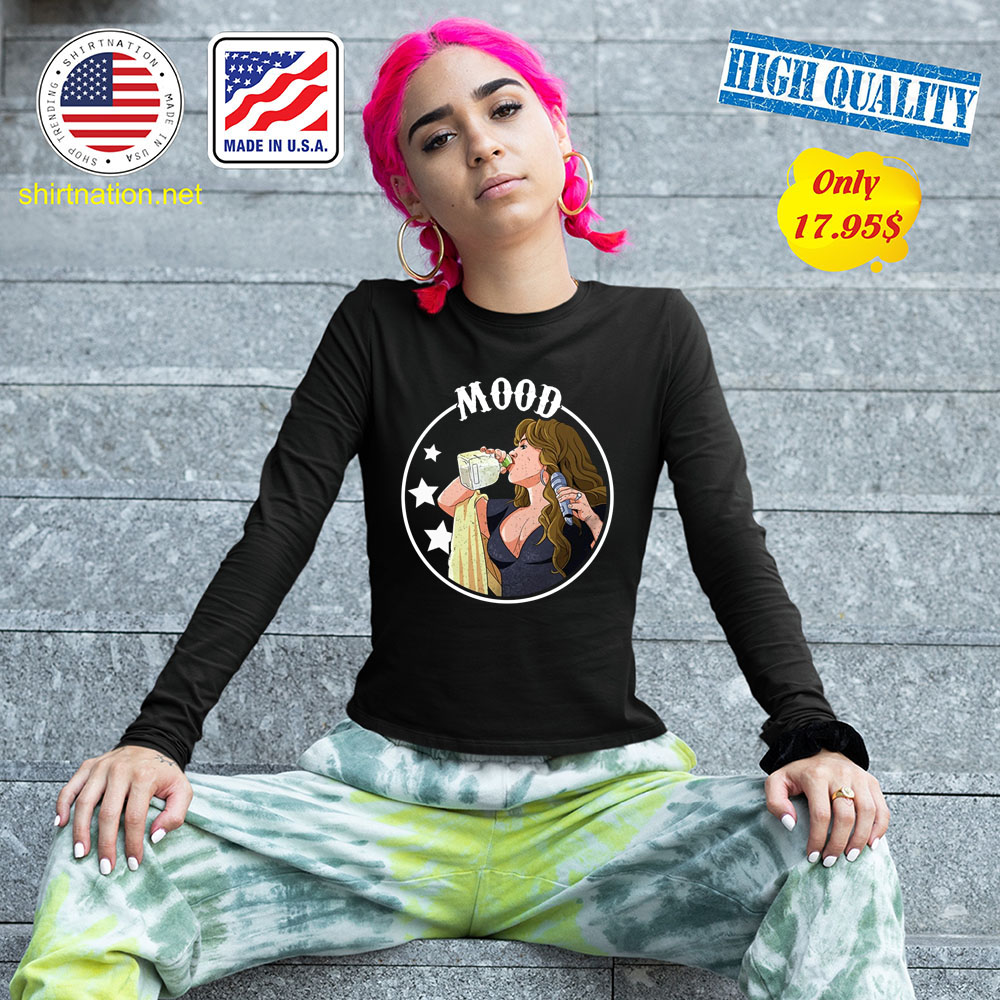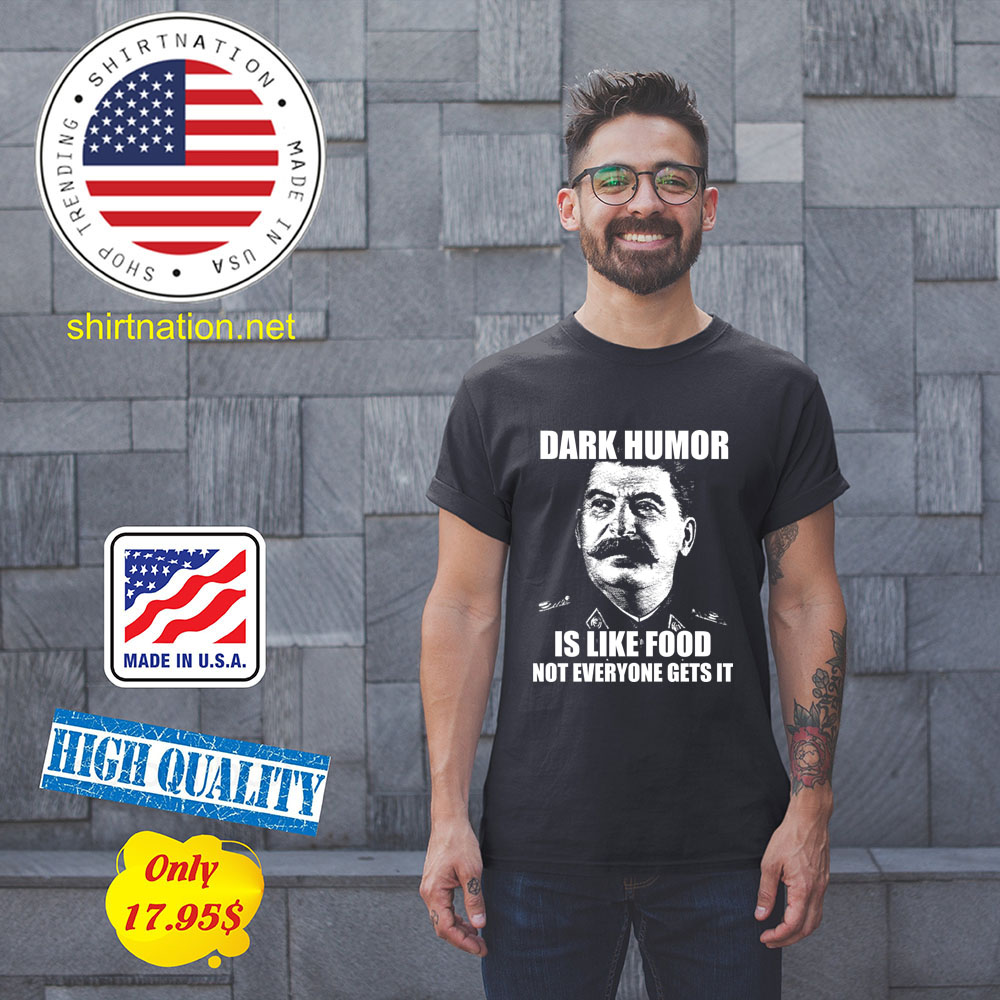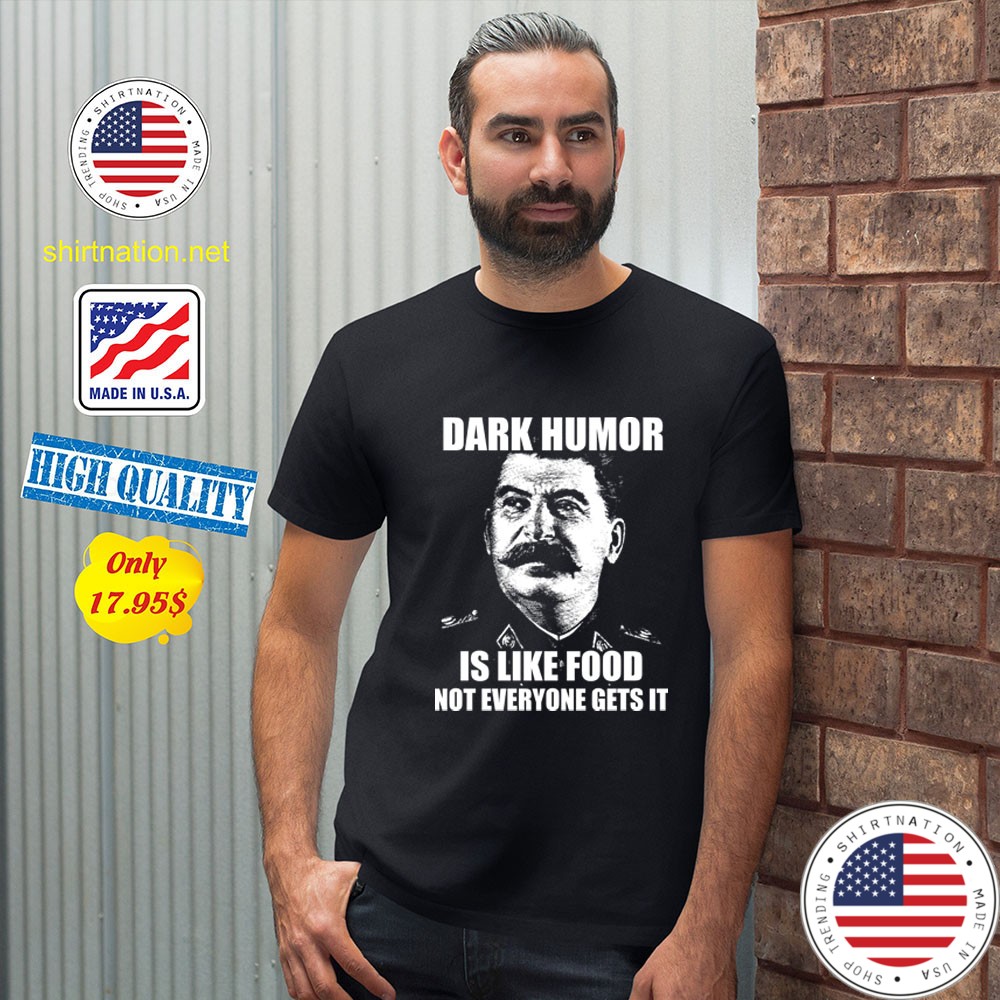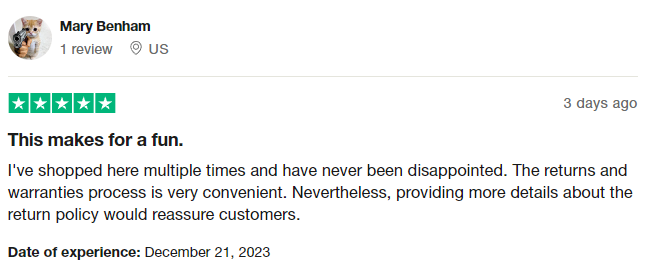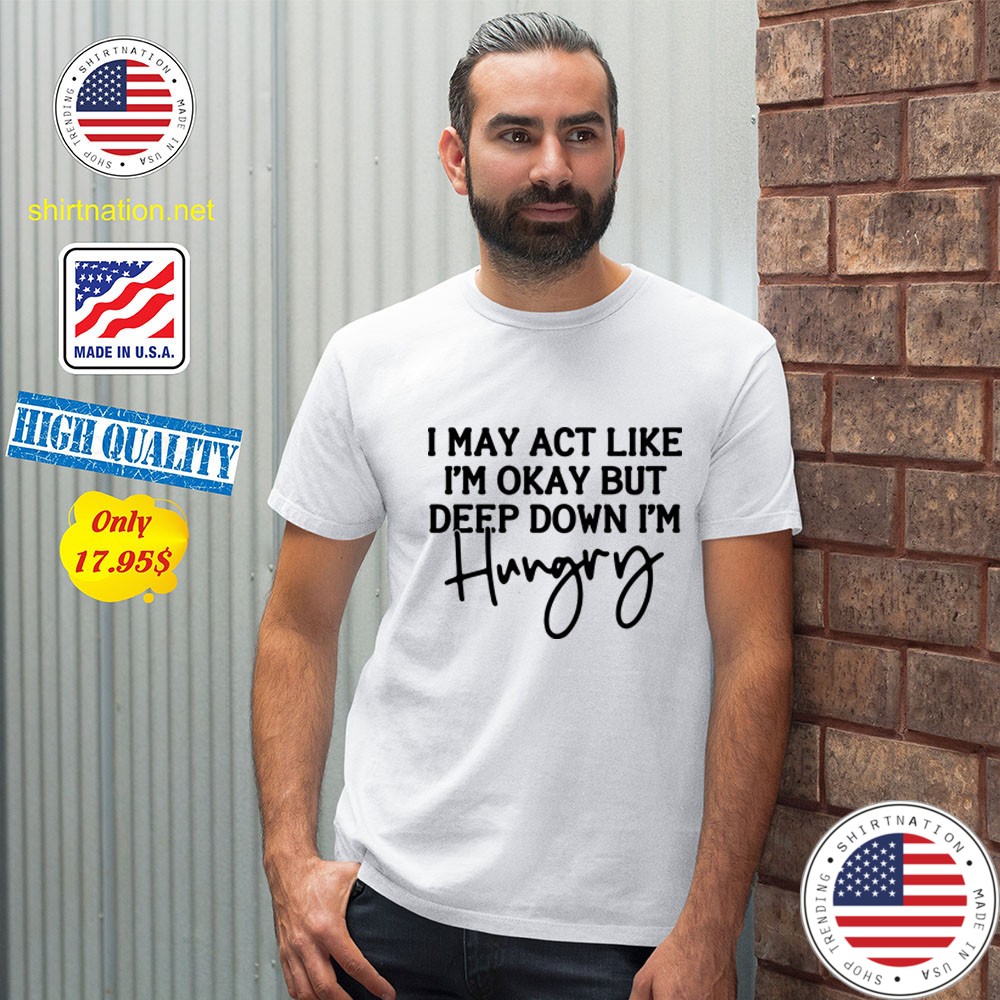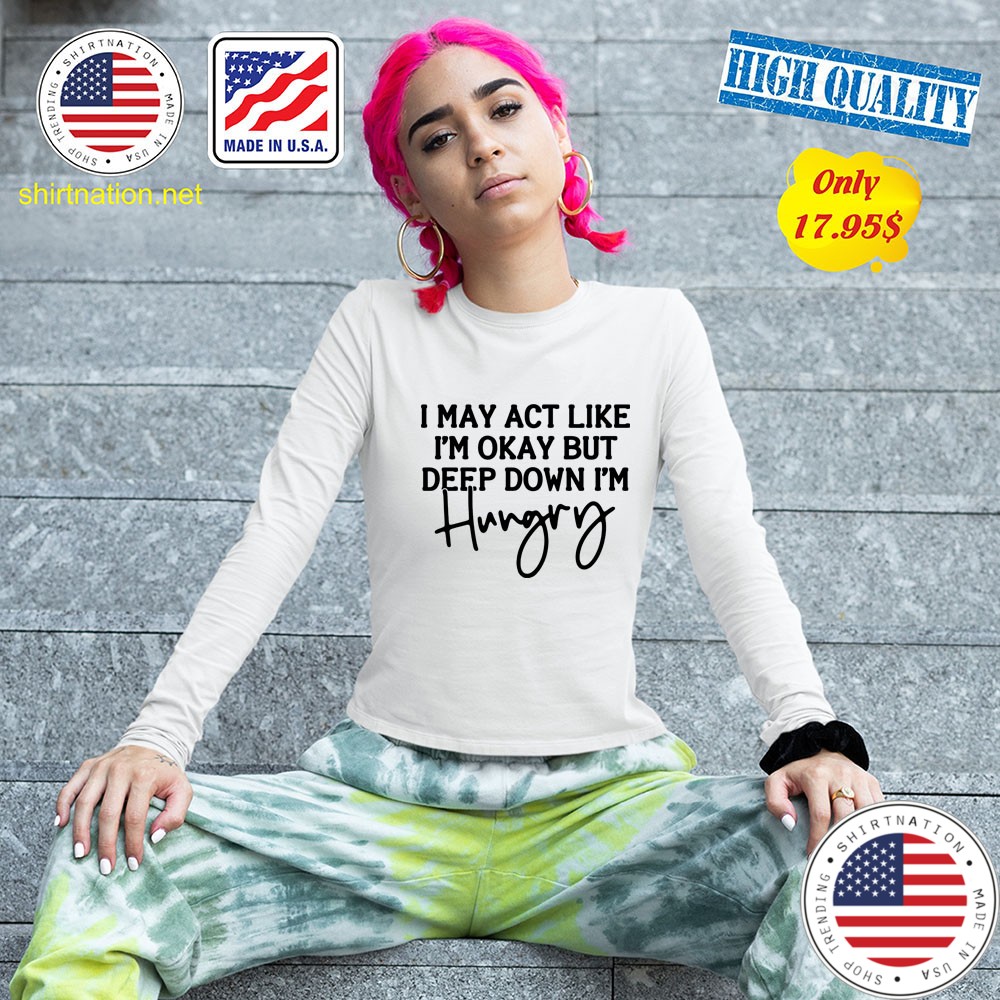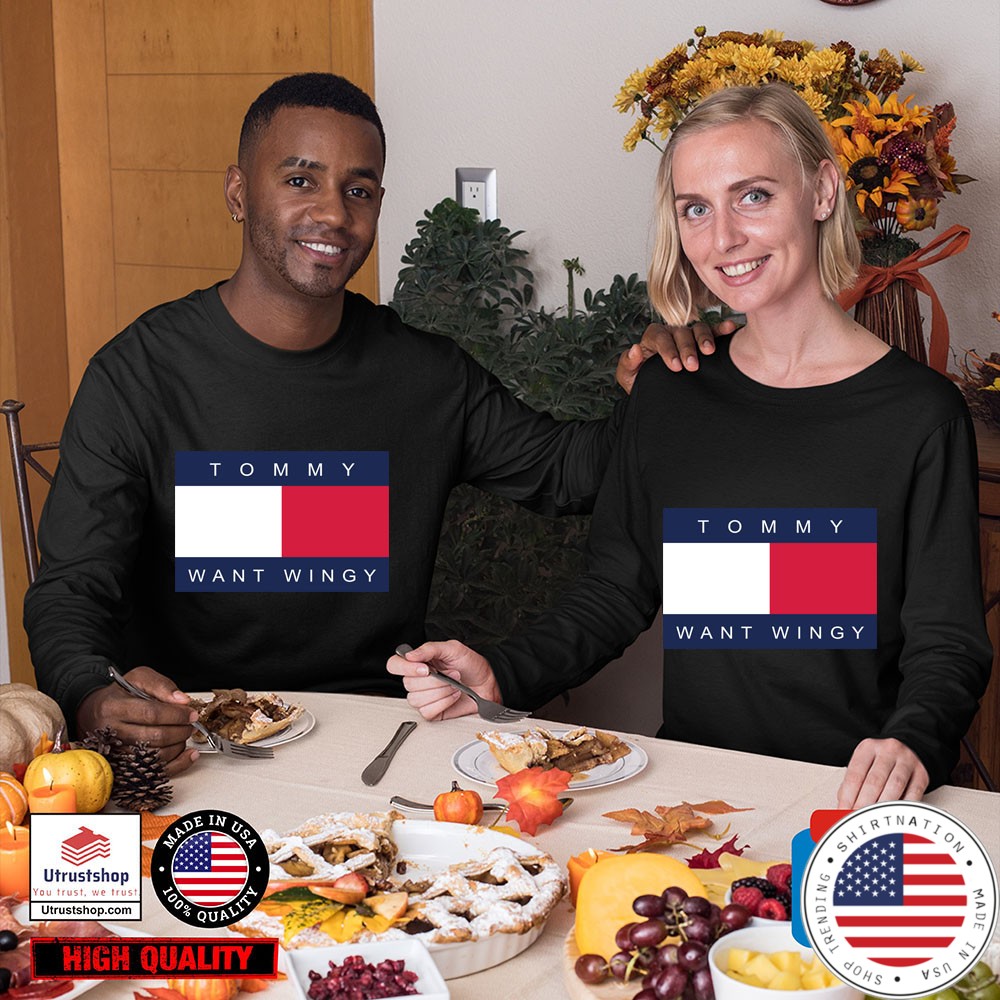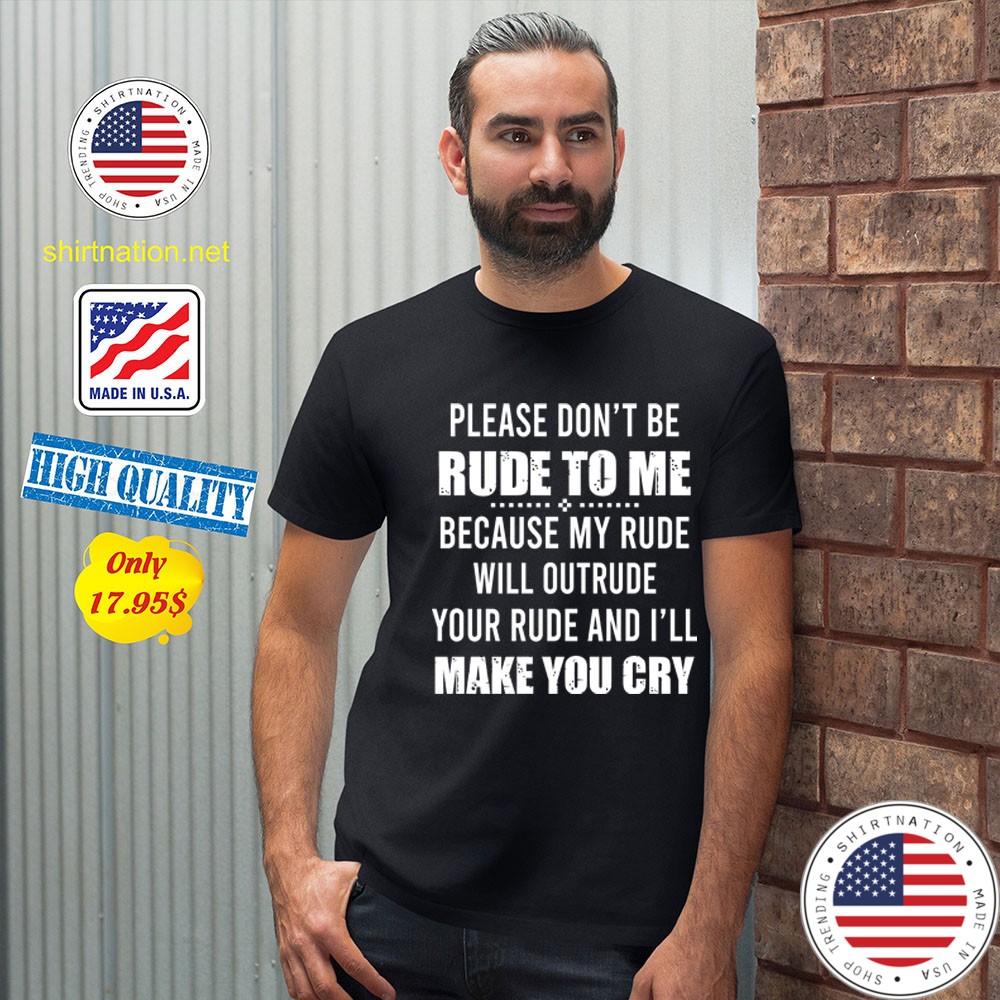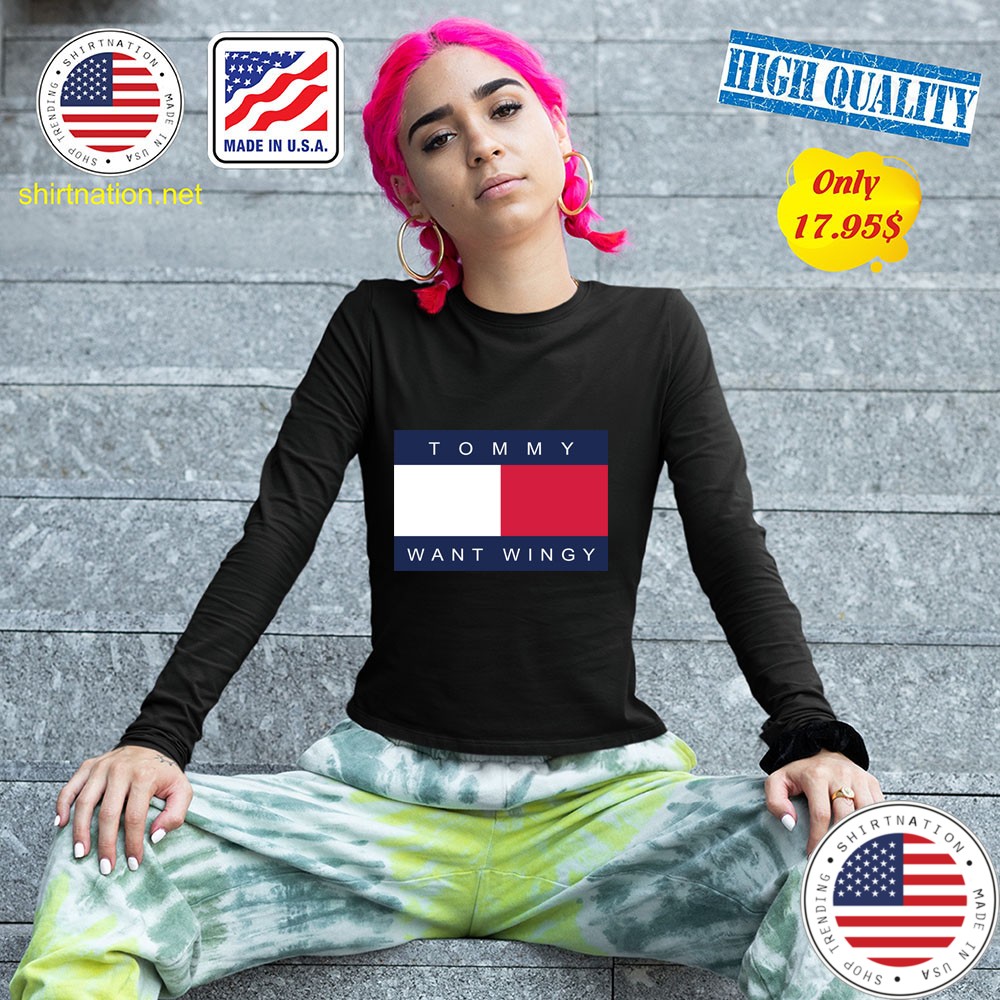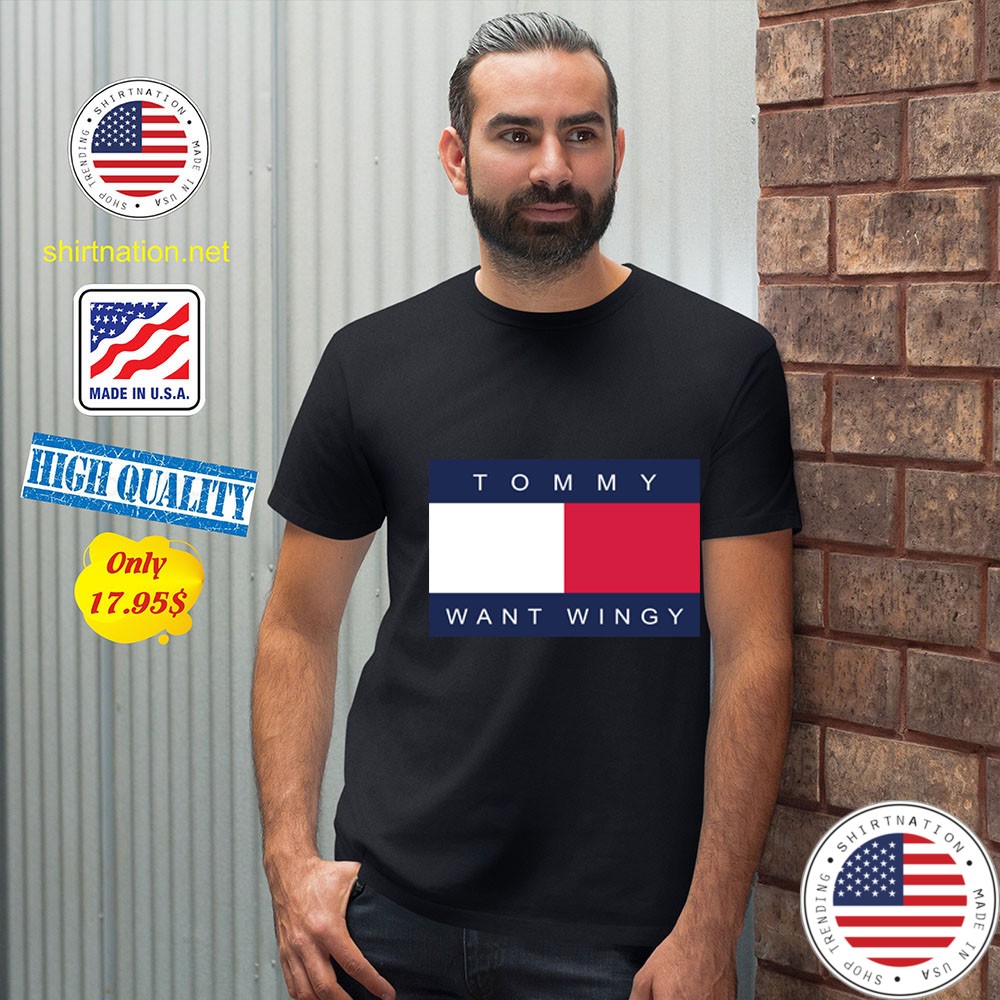Dark humor is like food not everyone gets it Shirt
Since jokes are inherently social, they can also nurture a sense of community when the world seems to be going to hell. Just one day after Hurricane Katrina ravaged New Orleans in 2005, someone put up an anti-looting poster on the window of a rug store which read: ‘Don’t try. Sleeping inside with a big dog and an ugly woman, two shotguns and a claw hammer.’ Later that week, a new sign appeared: ‘Still here. Woman left Fri. Cooking a pot of dog gumbo.’Even in the wreckage of a broken city, in which looting and violence were real possibilities, these darkly funny words invited all who read them to laugh in the face of danger and death and, in the process, to find some power over their suffering. The joke was a decision not to be victimized by terrible circumstances. The often wild and politically incorrect coronavirus memes we’re seeing today perform the same function.When all of this is over we will remember the tragedy and the fear, but we’ll also remember how we drew together in spite of it all, and how the jokes that we made helped us hold on to our common humanity.


Dark humor is like food not everyone gets it Shirt
In these strange times, people naturally turn to the past for orientation: Londoners recall the spirit of the Blitz, while citizens of St Petersburg look back to the Nazis’ Siege of Leningrad to remind themselves what they can overcome. But tales of suffering and heroism take us only so far. Humour is just as important. It punctures the sense of pervasive anxiety and shines a light into unfamiliar and dark places.Here, too, the past can serve as a guide. History reminds us that laughing in the face of fear is a powerful impulse, regardless of the risk involved. Soviet citizens lived in a world where a single wrong word could mean denunciation and their lives being torn apart by Stalin’s ruthless secret police. A harmless joke could lead to the dreaded 5 a.m. knock, ransacked apartments, and a terrifying ride in a ‘Black Raven’ prison car to an NKVD cell. There, these unfortunate souls were frequently subjected to days-long interrogations by officials determined to extract confessions that transformed a careless joke into evidence of a conspiracy against the Soviet project. A directive issued in March 1935 declared that sharing political jokes was essentially the same as leaking state secrets, so the intentions of joke-tellers were to be systematically disregarded.
